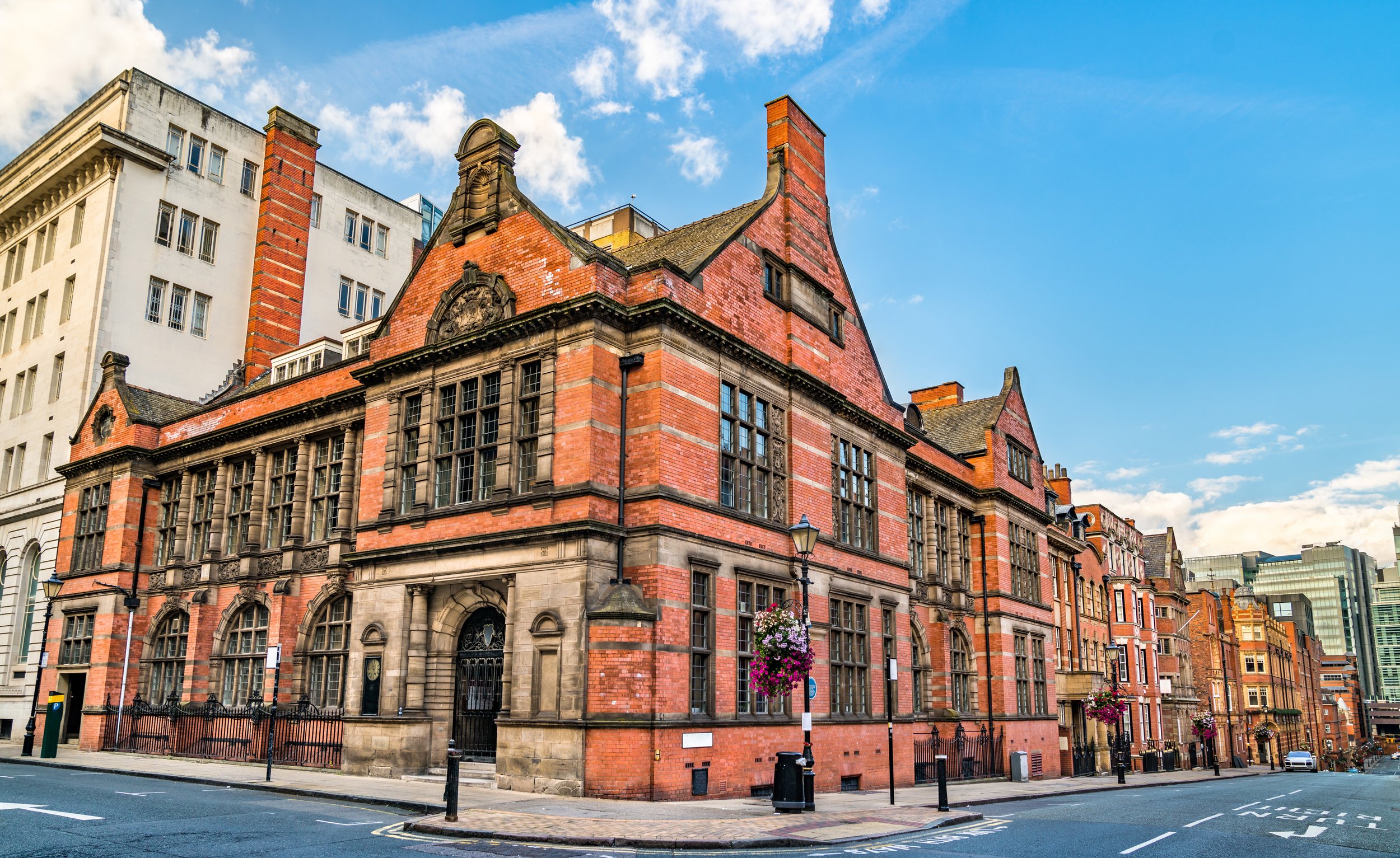
Institute Laureates
The Institute is committed to enriching the cultural life of the region.
The appointment, annually, of Institute Laureates, supports this endeavour, by providing access to new work for our members and visitors, by supporting artists, writers, poets, scientists and historians in the region, and by offering workshops and lectures by the laureates.
Our Laureates for 2025-26 are listed below:
Naush Sabah
Poet-in-Residence
Naush Sabah is a writer, editor, critic, and educator based in the West Midlands. In 2019, she co-founded Poetry Birmingham Literary Journal where she is currently Editor and Publishing Director.
-
The journal is a quarterly periodical of contemporary poetry and poetry criticism, described by the TLS as ‘intellectually lithe and provocative’ with a ‘dynamic and incisive critical section’.
Naush also co-founded Pallina Press where she is Editor-at-Large and she currently serves as a trustee at Poetry London. Her writing has appeared in The Poetry Review, the TLS, PN Review, The Dark Horse, Modern Poetry in Translation, and elsewhere. A limited-edition double micro-pamphlet box set Heredity/ASTYNOME was published by Broken Sleep Books imprint Legitimate Snack in June 2020. She was shortlisted for the Royal Society of Literature’s 2021 Sky Arts Writers Award.
Her debut pamphlet Litanies was published by Guillemot Press in November 2021 and shortlisted for the Michael Marks Poetry Award in 2022. It has been reviewed in The Guardian as having ‘something of Thomas Hardy’s bittersweet dialogue with the divine,’ and in The Irish Times as, ‘an exciting and auspicious set of poems’. Naush also lectures in creative writing at Birmingham City University.
Andrew Reekes
Historian-in-Residence
Andrew was educated at King’s School Worcester & Exeter College, Oxford, and has spent a lifetime in education, leading History departments at Tonbridge, Cranleigh & Cheltenham College.
-
He was headteacher of Arnold Lodge School & then became Sub-Warden of Radley College.
He was Chief Examiner for ‘O’ Level History, Oxford & Cambridge Board, an inspector with Independent Schools Inspectorate & for 12 years he led training for senior leaders in HMC & GSA schools.
In retirement Andrew has returned to his first love, History, studying for a research degree under Malcolm Dick at the University of Birmingham, & writing for History West Midlands. He has written four books, including Speeches that Changed Britain and a comparative biography on Joseph Chamberlain and George Cadbury.
Dr James Dawson
Scientist-in-Residence
James obtained his BSc (Hons) in biochemistry from the University of Sussex. He subsequently undertook research at University College London into cancer cell growth, studied medicine at the University of Leicester and has worked throughout the East and West Midlands, and has been a consultant anaesthetist in Nottingham for the last 12 years.
-
He has written a book on pharmacology and a handbook for junior doctors, now in its 5th edition with Oxford University Press, and various articles in the medical field. James is a life-long amateur astronomer, and now observatory director for the Nottingham Astronomical Society’s observatory.
He is Librarian for the Society for the History of Astronomy, based at The Birmingham and Midland Institute, and has published articles in the Journal of the British Astronomical Association and other astronomy publications. He is a Fellow of the Royal College of Anaesthetists and of the Royal Astronomical Society. James is currently renovating the Nottingham Astronomical Society’s observatory and spends a lot of time tinkering with amateur electronics, and more recently with amateur spectrophotometry. He is a vore member of Nottingham Astronomical Society’s outreach programme, educating and entertaining members of the Society and interested outside parties, including scouts, cubs, and school children.
Brother Piran-Maria
Philosopher-in-Residence
Brother Piran-Maria is a Franciscan friar and cultural theorist working at the intersection of consciousness studies, continental philosophy and cultural critique. His work explores what it means to be human - and humane - in a fragmented, post-truth world.
-
Based at Woodgate Friary near Birmingham, Brother Piran-Maria reimagines the human not as an isolated self, but as a relational being. He strives to be philosophically grounded, politically honest and emotionally real. Currently, he leads a two year project on the collapse of collective meaning in contemporary life, seeking new grounds for solidarity, truth and ethical coexistance beyond identity and certainty.
Jeffrey Skidmore OBE
Musician-in-Residence
Jeffrey Skidmore’s reputation as one of the UK’s leading choral directors and an ardent advocate of the importance of singing in people’s lives today is rooted in his work with Ex Cathedra, the ensemble he founded over 45 years ago.
-
Jeffrey’s driving passion has been to refresh and reinvigorate the choral repertoire and to make it accessible to as many people as possible. He and Ex Cathedra have long been known for exciting and innovative but always attractive programming, underpinned by thorough research and preparation.
Jeffrey is a pioneer in the field of research and performance of choral works of the 16th, 17th and 18th centuries, both in the old and new worlds, and has won wide acclaim for his recordings of French and Latin American Baroque music with Ex Cathedra.
Anna Lawrence
Writer-in-Residence
Anna Lawrence is a Birmingham-based writer. She grew up on the edge of the Black Country, where she set her novel, Ruby’s Spoon (Vintage/Penguin). She gained a first-class degree in English Literature and Language (University of Oxford) and an MA in Children’s Literature (University of Warwick). The Telegraph named her of the ‘top 10 new novelists of 2010’.
-
Ruby’s Spoon was listed as Booklist’s Top 10 first novels and one of San Francisco Chronicle’s Best Books of 2010.
Other work includes short stories, such as ‘Quarry’ (George Eliot Bicentenary Project), memoir (‘H is for Holloway’, Mslexia magazine), poetry (Poetry Birmingham), arts reviews (Source Magazine) and critical writing (on Hoban’s Riddley Walker, ‘Learning to Read Riddley’ for The Reader). She has written for arts festivals (‘Yours sincerely: writing for the climate’, Durham Book Festival) and the International Festival of Glass, and her poetry sequence written in Riga on a British Council writer exchange was subsequently mapped onto Birmingham with ‘Overhear’ and performed around the city for the Birmingham Literary Festival.
She lectured in creative writing at Birmingham City University, and now runs B-Writing at the BMI, offering coaching, classes and community for Birmingham writers.
Peter Tinkler
Artist-in-Residence
As far back as I can remember I’ve always wanted to create images. I was educated in Ireland, studied illustration and animation in Wolverhampton, and now live and work in Birmingham, running my own art courses for adults.
-
My work is traditional based, with an emphasis on technique and capturing mood, or a sense of drama. I value the basic principles of drawing and painting, like building up simple shapes, form, layering tone, and adding mass to achieve a look of weight and volume. Although I have worked as a freelance illustrator, and continue to do so occasionally, my main focus these days is tutoring and my more personal work.
I’m influenced by many avenues of art, including literature, film, and history, but if I was forced to give specific examples, I would say the imagery of Goya, the Vienna Secession, and the principles of the Pre-Raphaelites, hold particular meaning.

BMI Membership
Access a wide range of exclusive benefits
The BMI offers a range of different memberships tailored to suit any circumstances. A full membership offers the use of the Members’ Room, the use of the library, discount in the BMI Coffee Lounge, discount or free entry to BMI lectures and events and voting at the AGM







